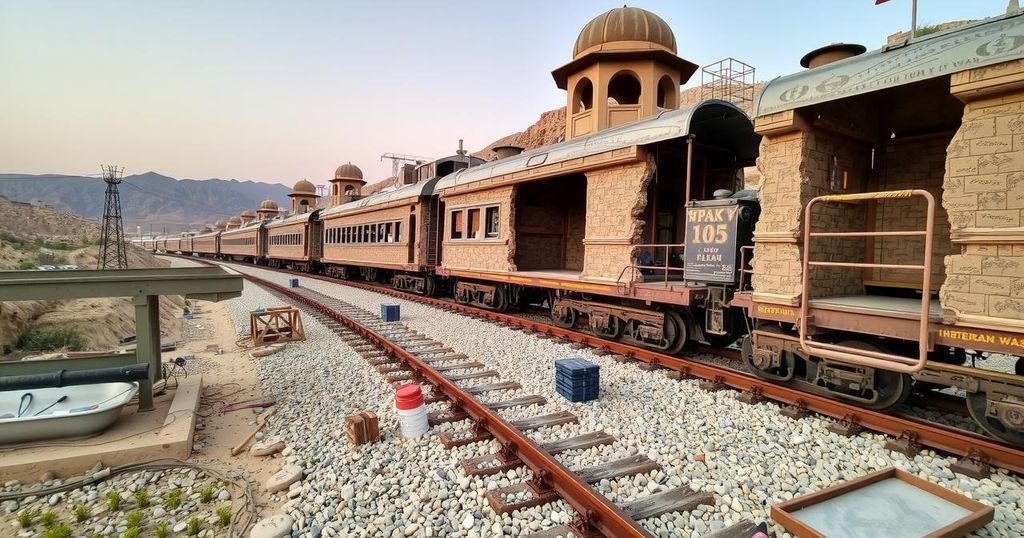World news
AFRICA, BRANDVLEI, CAPE TOWN, CGS, DRIENIE VISSER, EARTHQUAKE, EMERGENCY RESPONSE, LET, MA, NATURAL DISASTER, NATURAL DISASTERS, NORTHERN CAPE, RAYMOND DURRHEIM, SOUTH AFRICA, SOUTH AFRICAN COUNCIL FOR GEOSCIENCE, SOUTH AFRICAN RESEARCH CHAIR, U. S. GEOLOGICAL SURVEY, UNITED STATES GEOLOGICAL SURVEY, UNIVERSITY OF THE WITWATERSRAND
Aisha Khan
0 Comments
Magnitude 5.3 Earthquake Shakes Northern Cape, South Africa
A 5.3 magnitude earthquake struck South Africa’s Northern Cape on December 22, 2024, affecting residents far and wide, including Cape Town. The quake, centered west of Brandvlei, was felt by many and has prompted discussions on the region’s seismic vulnerability and the need for preparedness. Local authorities reported no significant injuries or structural damage, but concerns linger regarding water systems.
On December 22, 2024, a 5.3 magnitude earthquake struck the Northern Cape region of South Africa at 2:51 AM local time. The epicenter was located approximately 101 km west of Brandvlei, prompting residents across a wide area, including those in Cape Town, to feel the tremors. The event, registered by the U.S. Geological Survey and confirmed by the South African Council for Geoscience, occurred at a depth of 10 kilometers, highlighting the country’s susceptibility to seismic disturbances.
Reports of the earthquake reached even distant towns, with over 200 residents logging their experiences on the USGS website. Local farmer Drienie Visser expressed the shock of the event, stating, “Our whole house shook and I thought it would fall apart. That was the worst earthquake we’ve ever had.” Many residents echoed this experience, detailing feelings of fear and confusion as the ground trembled.
Following the main earthquake, the CGS reported several aftershocks, the strongest measuring 2.9 in magnitude. Professor Raymond Durrheim of the University of the Witwatersrand explained the area’s seismic history, noting the occurrence of swarms of seismic events previously. CGS spokesperson Mahlatse Mononela described the quake as “unusual,” considering the Northern Cape’s relative calmness in seismic activity until this point.
Fortunately, initial assessments indicated no significant injuries or damage, although concerns remained regarding potential effects on local infrastructure, particularly boreholes and water systems. Residents expressed their fears regarding the event and speculated on its possible causes in light of agricultural drought conditions. “People started saying maybe the Earth is shaking because of the big rain that’s coming because of the drought,” recounted Visser, reflecting the community’s deep connection to their land.
As the geological community continues to monitor aftershocks and potential long-term implications, the recent earthquake emphasizes the necessity of public awareness and preparedness in relation to natural disaster risks. Despite being a relatively moderate seismic event compared to global standards, its impact on the Northern Cape’s residents was profound, sparking essential conversations about geological surveys and public readiness initiatives.
The recent 5.3 magnitude earthquake in South Africa’s Northern Cape serves as a significant event, prompting renewed awareness of the region’s seismic vulnerability. Historically, the Northern Cape has experienced relatively low levels of seismic activity; however, this quake has brought to light the potential for larger seismic events and the necessity for comprehensive geological surveys. The region’s geological profile, shaped by past seismic occurrences, suggests that preparedness and community education on natural disaster risks are critical for mitigating future impacts.
In conclusion, the 5.3 magnitude earthquake that struck the Northern Cape on December 22, 2024, serves as a wake-up call regarding the seismic risks in a region previously regarded as relatively tranquil in this regard. Although there were no significant injuries or property damage reported, the event has reignited discussions about the importance of geological readiness and public education on potential natural disasters. Continuous monitoring and proactive community engagement remain essential for understanding and addressing the implications of such seismic activity.
Original Source: evrimagaci.org




Post Comment